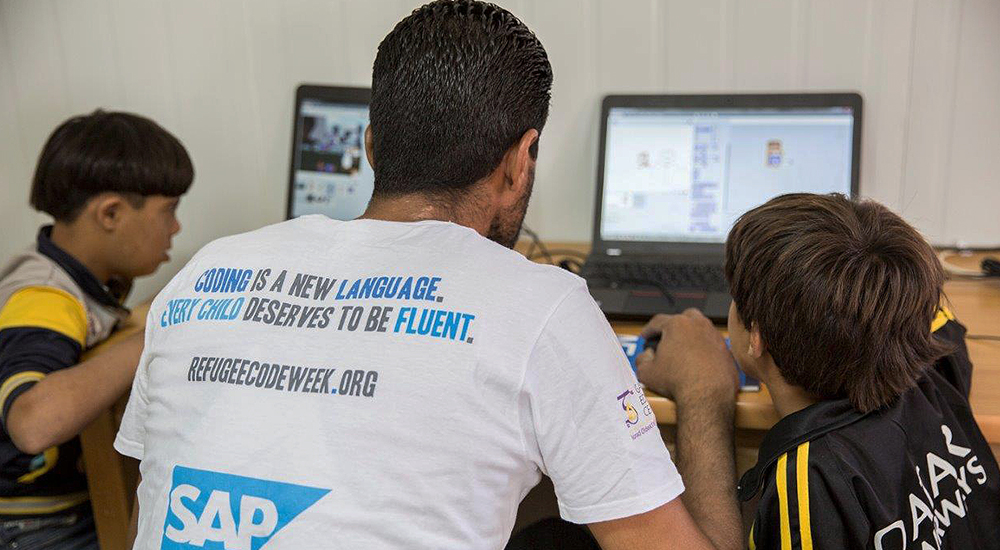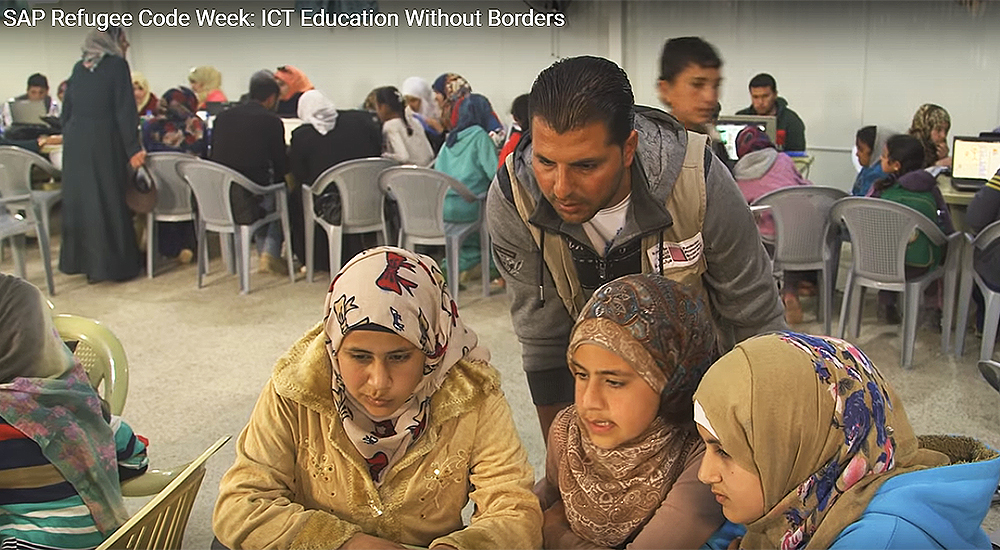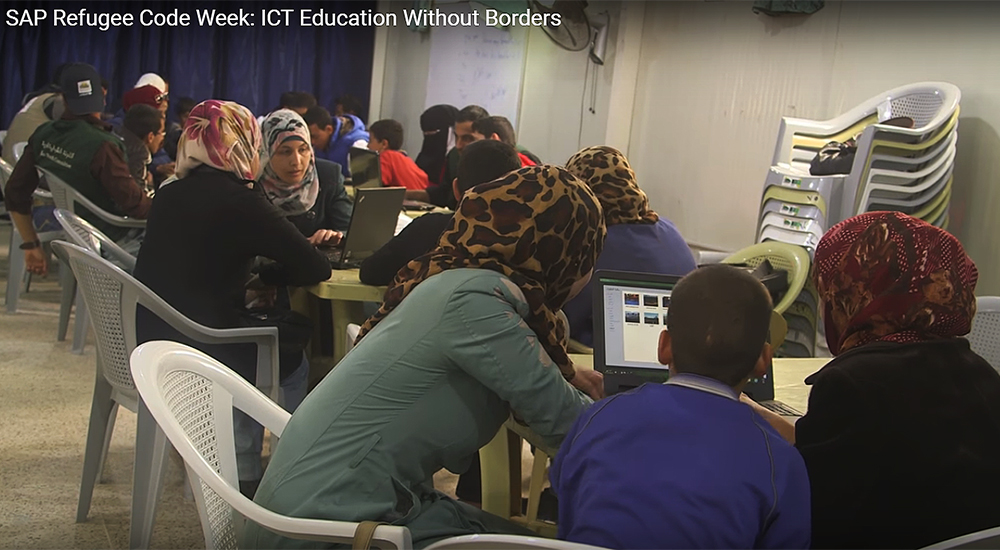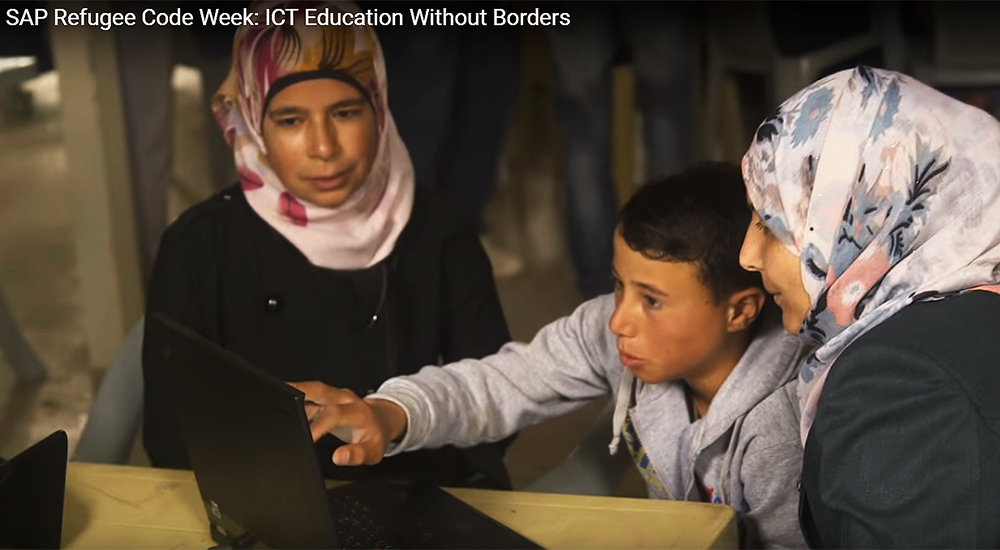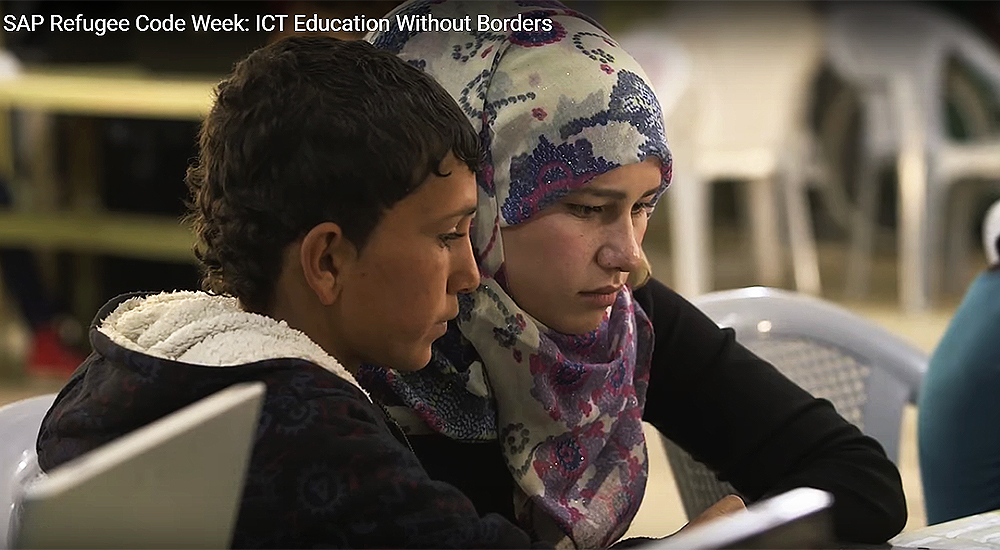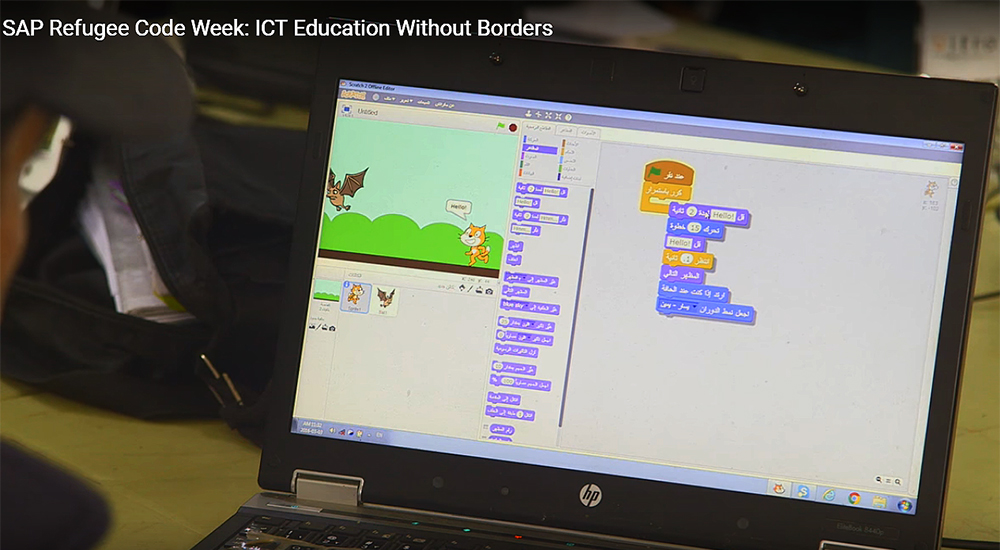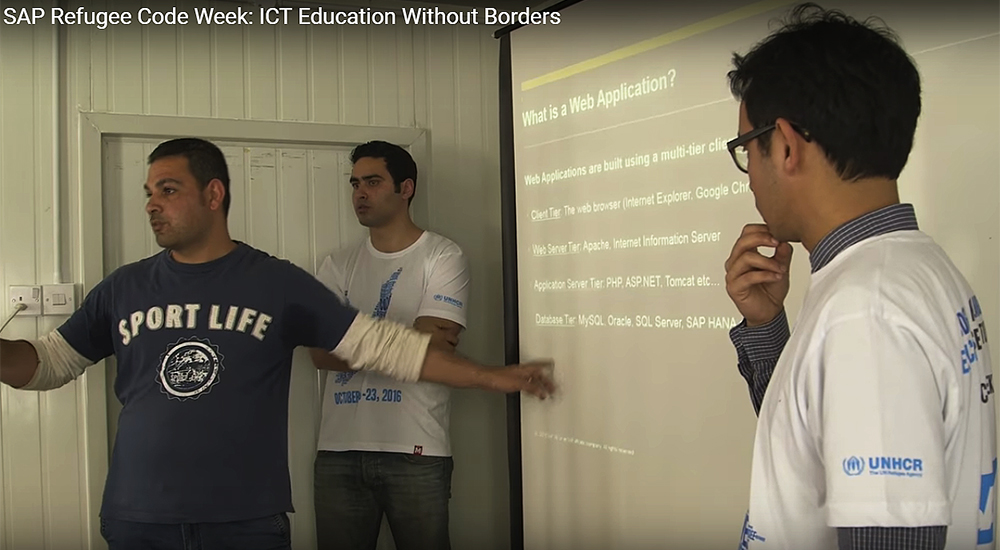SAP and UNHCR complete Refugee Code Week following Africa Code Week
SAP, UNHCR, and partners from public, private sector and non-governmental organisations, launched SAP Refugee Code Week, an initiative that aims to train 10,000 youth refugees and nationals in Egypt, Jordan, Lebanon, and Turkey. First announced at the recent World Humanitarian Summit, the initiative supports the United Nations New York Declaration for Refugees and Migrants, which aims to strengthen the economic and social contribution of migrants to their local communities and host countries.
Refugee Code Week initiative is in collaboration with Galway Education Centre, the United Nations High Commissioner for Refugees, and more than 25 local partners. Refugee Code Week builds on the huge success of Africa Code Week, which trained more than 89,000 participants in 2016, four times the original goal.
Building sustainable student engagement, Refugee Code Week is partnering with a number of Jordanian educational institutions, including Al-Balqa Applied University, German Jordanian University, The Hashemite University, Princess Sumaya University for Technology, Rum International School, The University of Jordan, University of Petra, and Zarqa University.
With millions of refugees in the Middle East, Refugee Code Week has partnered with ReBootKamp RBK to extend their coding initiative, offering the opportunity to join Amman-based RBK coding education camp. The successful launch of RBK’s first 16-week coding camp of which 50% were refugees and 50% Jordanians, graduated with a competitive edge resulting in near 100% job placement.
In Jordan, the top 90 participants of Refugee Code Week aged 18-24 will be able to join ReBootKamp’s 16-week coding program to gain competitive IT skills and become coding experts. Demonstrating the job opportunities, Middle East and Africa ICT spending will reach a high of $260 billion in 2016, according to IDC.

“The displacement of Syrians across the Middle East has had devastating consequences for the nation’s children and youth. In support of refugee resilience and the expansion of future life choices, the Refugee Code Week is imparting basic principals in computer programming, while providing market orientated skills to support future employability,” said Gavin David White, External Relations Officer, UNHCR.
“By joining forces on Refugee Code Week, governments, technology companies, and local NGO partners can enable refugees, inspire local community talent, reduce the ICT skills gap, and support nationwide digital transformation. SAP is scaling innovations to inspire a better future, while creating a pipeline of talent to Middle East companies,” said Gergi Abboud, Managing Director of the Gulf, North Africa, and Levant, SAP.
“Many refugees in Jordan as well as the vibrant Jordanian youth have the work ethic and interest in technology to become computer engineers. In today’s digital economy, IT skills and technological know-how will fill the gap that can create better job opportunities that can yield millions in lifetime earning potential,” said Hugh Bosely, Founder and Executive Director, ReBootKamp.
SAP trained 1,854 instructors among refugees and Jordanian nationals in collaboration with 11 Universities. With 10:1 participants trained per instructor, organisers expect Refugee Code Week to surpass its 10,000 participants goal.
Signup to the Intelligent CIO Africa newsletter and never miss out on the latest news

